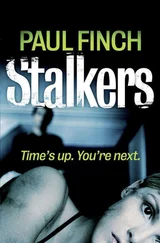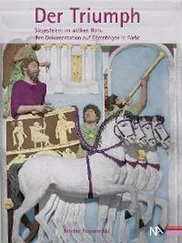A psychiatrist involved in his care diagnosed Chapman as exhibiting ‘the symptoms of virtually every malady in psychiatric literature’.
Astonishingly, Mark Chapman, who stalked and murdered John Lennon, now has his own collection of would-be stalkers, weird letter writers who mail him their assorted fantasies. He gets plenty of straightforward hate mail from Lennon fans, but he also gets love letters from women he has never met, and letters applauding what he did.
He spends a lot of time answering them. He also spends a lot of time reading The Catcher in the Rye.
If the death of Lennon put stalking into the public eye for the first time, it was the shooting of President Reagan by a Jodie Foster fan four months later that proved to the world that Lennon’s murder was not an isolated tragedy. The cliché ‘the price of fame’ began to have real meaning to a public which had smiled cynically every time a celebrity complained about invasion of privacy or harassment by fans. To those on modest incomes who helped their idols amass million-dollar bank balances by buying their records, watching their films or getting hooked on their TV soap characters, the stars’ whinges had always been a bit hard to take. Now, within four months, the real fear that stalked the stars had been brought out into the open. When celebrities complained about fans it was not, as their public had imagined, out of frustration at autograph hunters disturbing them in the middle of restaurant meals, or because they were unable to walk down a shopping mall without being mobbed; it was an ever-present knowledge that somewhere out there was a mentally deranged fan who had them in their sights. All they could hope was that the sights were not attached to a rifle.
John Hinckley, who shot Reagan in the chest and seriously injured his press secretary James Brady, as well as wounding a policeman and a secret service agent, did it, he claimed, for Jodie. In his shabby motel room in Washington police found a letter to the star:
Dear Jodie
There is a definite possibility that I will be killed in my attempt to get Reagan. This letter is being written an hour before I leave for the Hilton Hotel [where Reagan had been lunching]. Jodie, I’m asking you to please look into your heart and at least give me the chance with this historical deed to gain your respect and love. I love you forever,
John Hinckley
At the time Jodie Foster was eighteen, in her first year at Yale University. She was a well-established actress, having shot to fame as a child in films like Bugsy Malone. Hinckley’s attempt on Reagan’s life largely mirrored the plot of one of her films, Taxi Driver, in which she played a teenage prostitute. The other star, Robert de Niro, played a character described in the publicity material for the film as ‘a loner incapable of communicating’ who spent ‘his off-duty hours eating junk food or sitting alone in a dingy room’. When the taxi driver is rejected by the prostitute, he sends her a letter before setting out to assassinate the President. There’s no doubt that Hinckley had seen – and been influenced by – the film, because about six months before he shot Reagan he wrote to the film’s scriptwriter, asking for an introduction to Jodie Foster. The actress also knew his name well before she heard it on the news bulletins about the shooting; he had been pushing letters under the door of her room at Yale.
Hinckley, who was twenty-five at the time of the shooting, was a desperate, deluded and dangerous misfit. Unlike Mark Chapman, he had never really established any long-lasting adult relationships; one of the most telling comments about him came from his landlord when he was in college, who commented that in all the time he had known Hinckley, he had only once seen him in the company of another human being. But there was nothing in his early life to suggest that the kid from the well-off Texan background would end up a notorious would-be assassin, no signs of deep emotional or mental disturbance in his childhood. He didn’t come from a broken home, he wasn’t brutalized by poverty. There were some traumas to cope with, like living in the shadow of a successful and popular sister in school, but the majority of youngsters cope with problems of that scale.
Hinckley even managed to conceal his solitariness throughout high school, although in retrospect no close friends stepped forward and claimed to have shared his confidences. But to the rest of his classmates he appeared normal: ‘So normal that he appeared to fade into the woodwork,’ said one girl who was in his year. After school, though, and after moving away from his parents’ home, his life began to gradually disintegrate.
John Hinckley was the third and last child of the family. His father was an oil engineer, who moved the family to the capital of America’s oil industry, Dallas, when his son John was two. They were an America adman’s dream of a family: good-looking, churchgoing, hardworking parents with three blonde, blue-eyed, attractive children. Even in the looks-conscious environment of middle-ranking Dallas society, the only girl, Diane, stood out for her prettiness. Scott, the oldest boy, seven years older than John, did well at school and at sports and eventually went into his father’s business. John, as a child, was very cute, average at his schoolwork, and very good at basketball – the best in his elementary school team.
When he was eleven his parents moved to the most swanky suburb of affluent Dallas, to a large house with a sweeping drive and a swimming pool. He seemed to fit in at high school, again becoming very involved in basketball, and a keen supporter of all the school’s other teams. He even joined in with school activities like the Rodeo Club, which organized barbecues, square dances and trips to rodeos. The only shadow over his school career – which was academically undistinguished but OK – was the popularity of his sister, who was three years older than him. She was good at everything: a star in class, head cheerleader, in the choir, in a school operetta production. She was also very attractive. But if John felt oppressed by her presence, his classmates saw no sign of it.
By the time he was fifteen his father had amassed enough capital to start his own business, Hinckley Oil. He was successful, and when his oldest son Scott finished his engineering degree he joined the company. Five years later the company – and the Hinckley family – moved to the town of Evergreen in Colorado, again to a quiet, well-to-do area. By this time John Hinckley was studying for a business degree at Texas Technical University in Lubbock, Texas. He was registered at the Tech for the next seven years, changing from business to liberal arts, but never completed his degree and only attended classes sporadically.
It was at this stage that his life began to fall apart. He did not take part in any of the university social activities, and journalists who trawled through every aspect of his life after the assassination attempt failed to find any friends, close or casual, in Lubbock. Nobody really noticed him, and the only thing he did which in retrospect is revealing was to choose Hitler’s Mein Kampf and the Auschwitz concentration camp as two of his study projects in his German history course. The room where he lived – where his landlord only once saw him with another person – was always full of burger boxes and ice-cream cartons.
‘He just sat there all the time, staring at the TV,’ said his landlord. The picture of the De Niro character from Taxi Driver was starting to emerge. He dropped out of college in 1976 and went to hang around Hollywood, staying in cheap rooms in the red-light district. He went back to college in 1977, but did not last the year. He became involved with the National Socialist Party of America, a neo-Nazi group, but in the end he was kicked out: he was too extreme even for these right-wing extremists, and when he started to advocate shooting people they decided he had to go. The president of the party later told a journalist that they decided that Hinckley was ‘either a nut or a federal agent’.
Читать дальше












